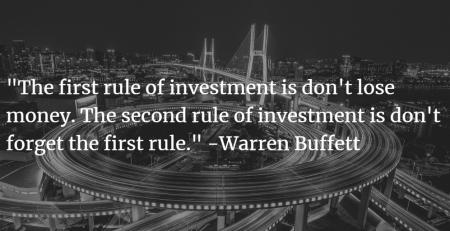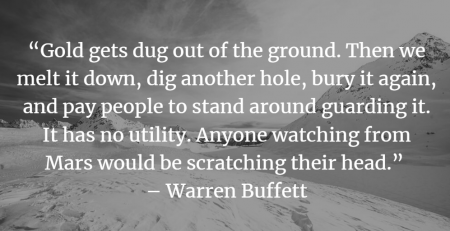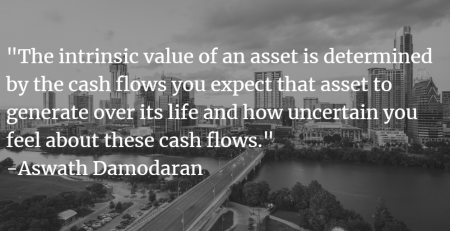Responsible Investing, ESG, and SRI
Over the past decade, a new sub-industry has developed within the investment community. It operates under a number of names, the broadest of which is Responsible Investing, which incorporates concepts such as ESG (Environmental, Social, and Governance), and SRI (Socially Responsible Investing).
At its core, Responsible Investing requires that investors acknowledge a number of issues surrounding each company, such as the relevance of environmental, social, and governance factors, as well as the long-term health and stability of the market, society, and the planet as a whole. This includes incorporating the positive investment impacts of both financial and non-financial value creation, as well as the effective assessment of the non-financial risks posed to a company, or that are created by a company.
Taken one step further, Responsible Investing also argues that capital allocators themselves (the investment firms, advisers, etc.) should practice ‘Stewardship’ when it comes to managing other people’s money. This means that asset managers and investment advisors should be responsible long-term business owners, participating in company decisions as shareholders, allocating other people’s capital carefully and responsibly such that it can be protected for the long term.
These are all fantastic concepts of which we are hugely supportive. Understanding companies in depth both in financial and non-financial terms, as well as internally and externally, is highly important for long-term returns. Factors such as these are of significant importance in our own research process.
But the way we see it, these concepts should have always been a part of proper investment analysis. Genuine long-term investors have been applying these principles for decades, whether named or not.
Sadly, the investment industry has taken these somewhat commonsense concepts and turned them into another marketing buzz word. They have produced thousands of ‘ESG’ strategies and sold trillions of dollars’ worth of products under this banner, each of which may or may not have much merit.
Our concerns with this lay in two main areas:
- Responsible Investing is not a new concept. ESG is not a new concept. Stewardship is not a new concept. They are all (and have always been) a part of investing properly.
We do not regard Responsible Investing as an addition to an investment process, nor as an additional threshold that needs to be met, but as a core part of all genuine long-term investing. Which it always has been.
Anyone who was not considering these factors before were simply not investing correctly. And anyone who was not operating as a good steward of capital arguably should not be managing any capital at all.
For decades, genuine investors have known that if a business’s products, services, or processes did not generate sustainable value for society, or if they did not treat their customers or their employees well, or if they were not managed effectively, it was likely that any outsized profits generated in the short-run would eventually be eroded by another business that could come in and generate more value for society.
For decades, genuine investors have understood that these qualitative considerations were important factors in determining the longevity of a business, and thus the longevity of the cash flows they would be entitled to as investors. Wall Street would have us believe that before these ‘ESG’ concepts, investors simply looked at a profit and loss statement in isolation to a business’s place in society.
It is true that 20 years ago, nobody talked about ESG investing. But that was simply because 20 years ago these principles did not have the branding and marketing that the industry now attaches to them. They were simply fundamental concepts.
But today we find ourselves in an industry where flashy branding and marketing dominate substance – where thousands of ESG products have been created to be sold to investors, as well as tens of thousands of new jobs with enormous salaries created for the sole purpose of monetizing this concept. Many of these products entirely miss the point of what it means to invest responsibly, something that requires an even deeper understanding of a business and its prospects, not just looking up an “ESG Score” on a screen.
As we know, if there is a demand for something, Wall Street will provide it. And large asset allocators such as sovereign wealth funds, public pension funds, etc. have, across the globe, created specific mandates for ‘ESG’ investment, and have set targets to meet in terms of how much of their own assets are invested in a ‘responsible’ manner.
For the industry, this is all a win-win. Wall Street not only gets the chance to create and sell thousands of new products, but there is the additional benefit that many of the buyers of these products do not care if they underperform the market or other similar offerings, they just need and want to be able to say they’ve invested ‘responsibly.’ So, investment performance is once again pushed down the priority order. That is the dream scenario. Both sides can now invest with a moral and ethical stamp of approval, something Wall Street has been sorely lacking for many, many years.
Let us be clear about the reality of this though – a huge amount of ‘Responsible Investing’ is pure marketing. It is simply another product to be able to sell to investors. If investors and companies were investing properly, they would be doing so responsibly already.
- The typical way Responsible/ ESG Investing is approached fundamentally misses the point.
The idea of thinking about a company’s impact on its employees, society, and the world, combined with managing other people’s capital in a responsible, long-term focused fashion should be a daunting process based in a fundamental understanding of the businesses we invest in.
But as is usually the case, in an effort to simplify things, the industry has largely approached Responsible Investing and ESG from a one-size-fits-all, quantitative perspective. Large numbers of ‘ESG’ scores and metrics now rank investments on all manner of different variables to determine which companies can or cannot be included within new ESG investment products. Said another way, which companies are good, and which are bad. Thousands of investment products (both active and passive) invest solely on those scores, proudly displaying the words ESG or ‘Responsible’ in their marketing as they do so. These scores are mostly meaningless.
As we have explained before with Factor Investing, when you take something that is qualitative and subjective in nature and force it into a quantitative framework, you end up with an output that doesn’t have much real-life value.
To bring to life just how foolish it is to try to apply scores and rankings to such complex subjective concepts, let’s take a second to consider Facebook, one of the best performing and most impressive companies of the past decade. Yet, it is also a company that routinely receives a very low ESG score, and therefore is typically excluded from most ESG products.
Facebook’s scores get knocked down for a number of reasons: firstly, on the ‘S’ category for how its algorithmic feed is affecting society — which is a fair and legitimate concern both from a societal and an investment perspective. Such a concern is of course important for investors to consider. It is counterbalanced by the huge societal benefit Facebook provides for its users in terms of communication, connections, news, marketplaces, entertainment- and all for free.
But the real problem area comes because Facebook also routinely scores very low on ‘G’ (governance) due to the dominance of Mark Zuckerberg, the founder, CEO, and majority vote holder. Incidentally, the same is also true for Amazon, Alphabet, and Netflix; all rank very poorly on the ‘G’ and therefore score poorly on ESG metrics. These companies do not have broad board structures and control ultimately rests with one or two individuals.
But is this the right way to think about long term investments? Would Facebook be where it is today without Mark Zuckerberg, or Amazon without Jeff Bezos? One of the main reasons these companies have been so successful is precisely because they have dominant and brilliant owners and founders who have been outstanding allocators of capital and stewards of their businesses.
This is just one example of the multitude of failings that exist within many industry standard ESG scoring and ranking systems. Countless more examples of the misappropriation of these ESG metrics exist, across the E and the S criteria as well. These concepts are simply too nuanced and too complex to be boiled down to a simple scoring system.
Wall Street likes these scores because they’re easy to produce, can be neatly ranked, and they can charge for them., And asset allocators like them because it saves them from having to do the hard work of thinking about these concepts in depth- they can ascribe a single number or letter to a company and move along But quantitative, one-size-fits-all ESG metrics just plainly miss the real-life issues that matter to us as genuine investors.
Conclusion
At the end of the day, we firmly believe that everyone should be ‘Responsible’ or ‘ESG’ investors (in terms of what it really means, not what the marketing says it means) – if you aren’t, then you aren’t investing properly in the first place. It is as simple as that.
Disclosures: This website is for informational purposes only and does not constitute an offer to provide advisory or other services by Globescan in any jurisdiction in which such offer would be unlawful under the securities laws of such jurisdiction. The information contained on this website should not be construed as financial or investment advice on any subject matter and statements contained herein are the opinions of Globescan and are not to be construed as guarantees, warranties or predictions of future events, portfolio allocations, portfolio results, investment returns, or other outcomes. Viewers of this website should not assume that all recommendations will be profitable, or that future investment and/or portfolio performance will be profitable or favorable. Globescan expressly disclaims all liability in respect to actions taken based on any or all of the information on this website.
There are links to third-party websites on the internet contained in this website. We provide these links because we believe these websites contain information that might be useful, interesting and or helpful to your professional activities. Globescan has no affiliation or agreement with any linked website. The fact that we provide links to these websites does not mean that we endorse the owner or operator of the respective website or any products or services offered through these sites. We cannot and do not review or endorse or approve the information in these websites, nor does Globescan warrant that a linked site will be free of computer viruses or other harmful code that can impact your computer or other web-access device. The linked sites are not under the control of Globescan, and we are not responsible for the contents of any linked site or any link contained in a linked site. By using this web site to search for or link to another site, you agree and understand that such use is at your own risk.






